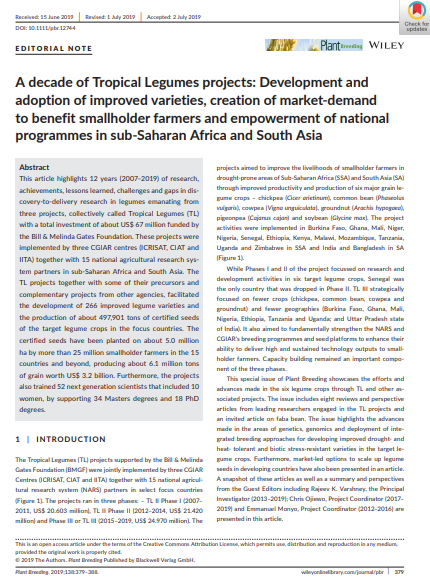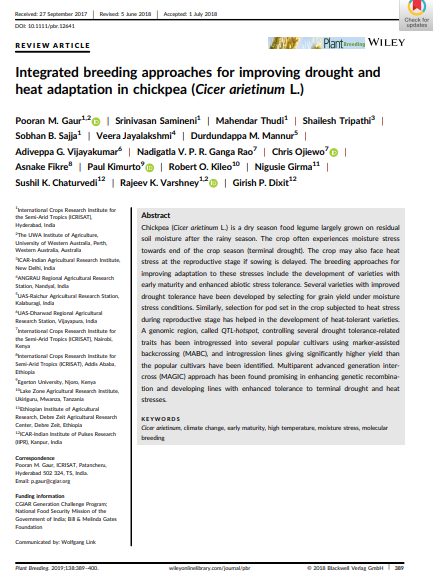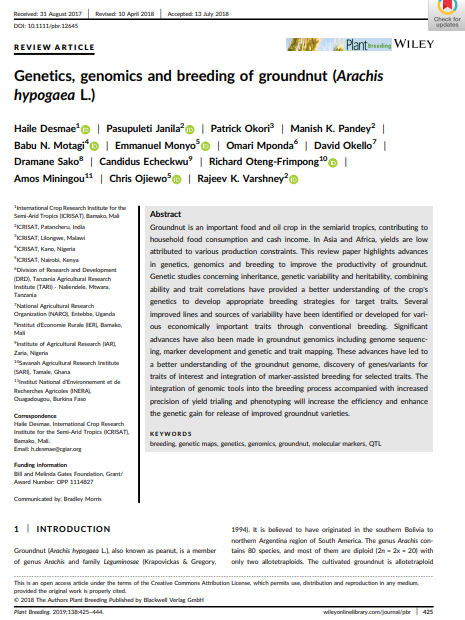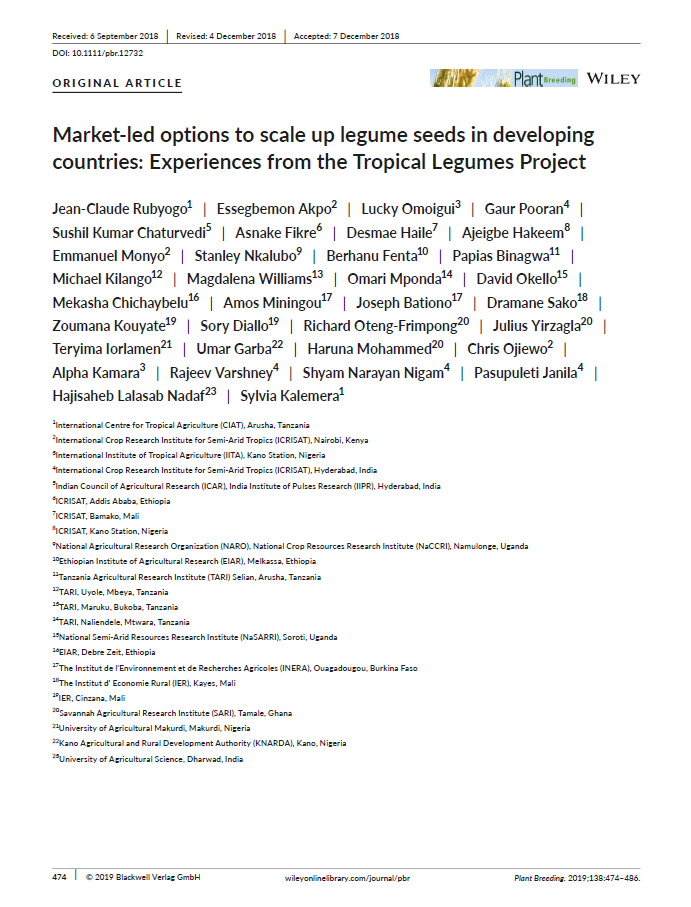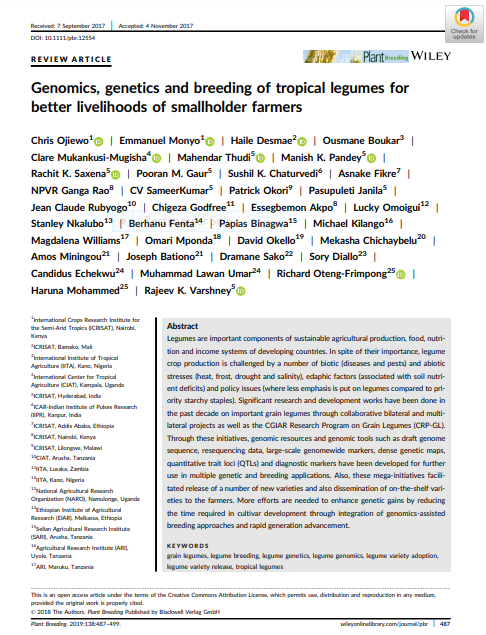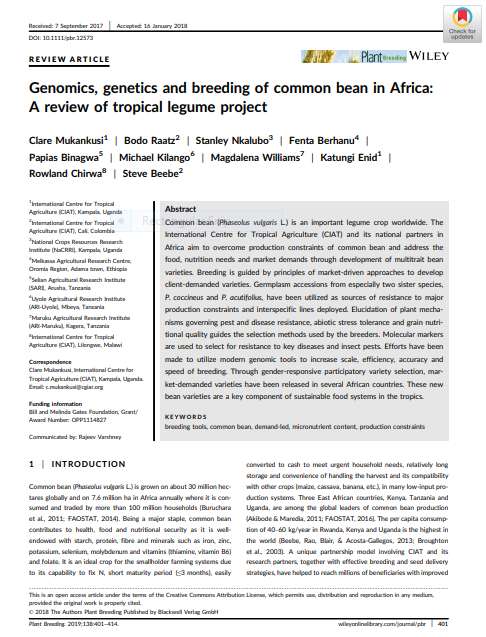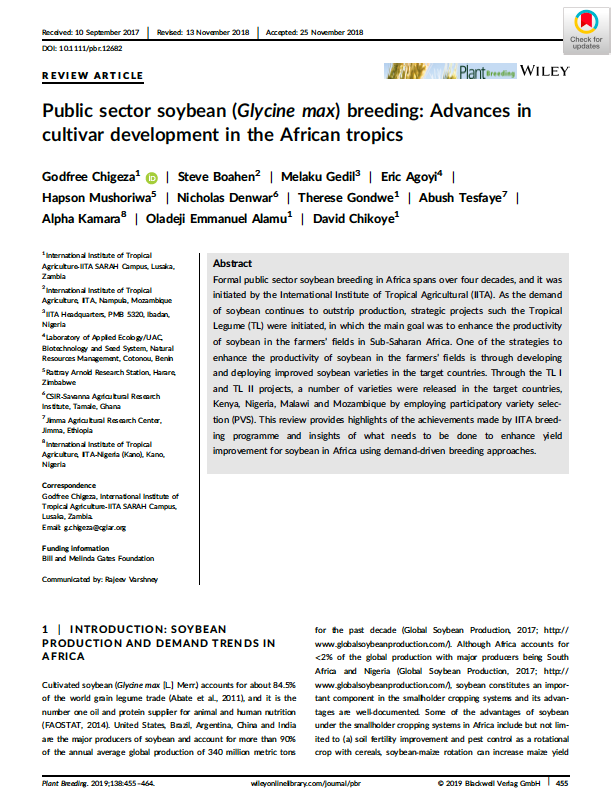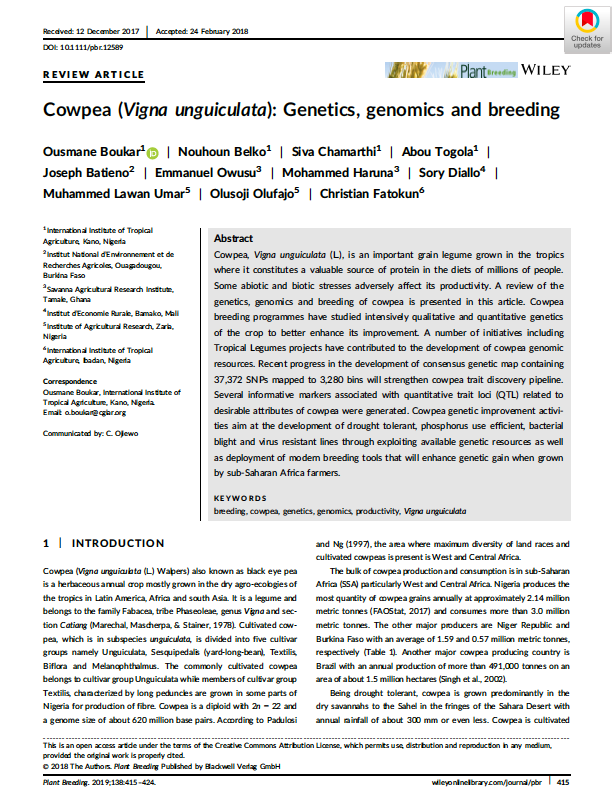Pigeonpea improvement: An amalgam of breeding and genomic research
Summary
In the past five decades, research has been constantly directed toward yield improvement in pigeonpea, resulting in the deployment of several commercially acceptable cultivars in India. Despite the genesis of hybrid technology, the biggest breakthrough, the enigma of stagnant productivity remains unsolved. To resolve this productivity disparity, genomic research along with conventional breeding was successfully initiated at ICRISAT. The study provided ample genomic resources to obtain insights into the pigeonpea genome, combating production constraints in a precise and speedy manner. The availability of the draft genome sequence with a large-scale marker resource oriented the research toward trait mapping for flowering time, determinacy, fertility restoration, yield attributing traits, and photo-insensitivity. Defined core and mini-core collection eased the pigeonpea breeding being accessible for existing genetic diversity and developing stress resistance. Modern genomic tools like next-generation sequencing, genome-wide selection helping in the appraisal of selection efficiency is leading towards next-generation breeding, an awaited milestone in pigeonpea genetic enhancement. This paper emphasizes ongoing genetic improvement in pigeonpea with an amalgam of conventional breeding as well as genomic research.
Open resource Download resource Access resource on external site


